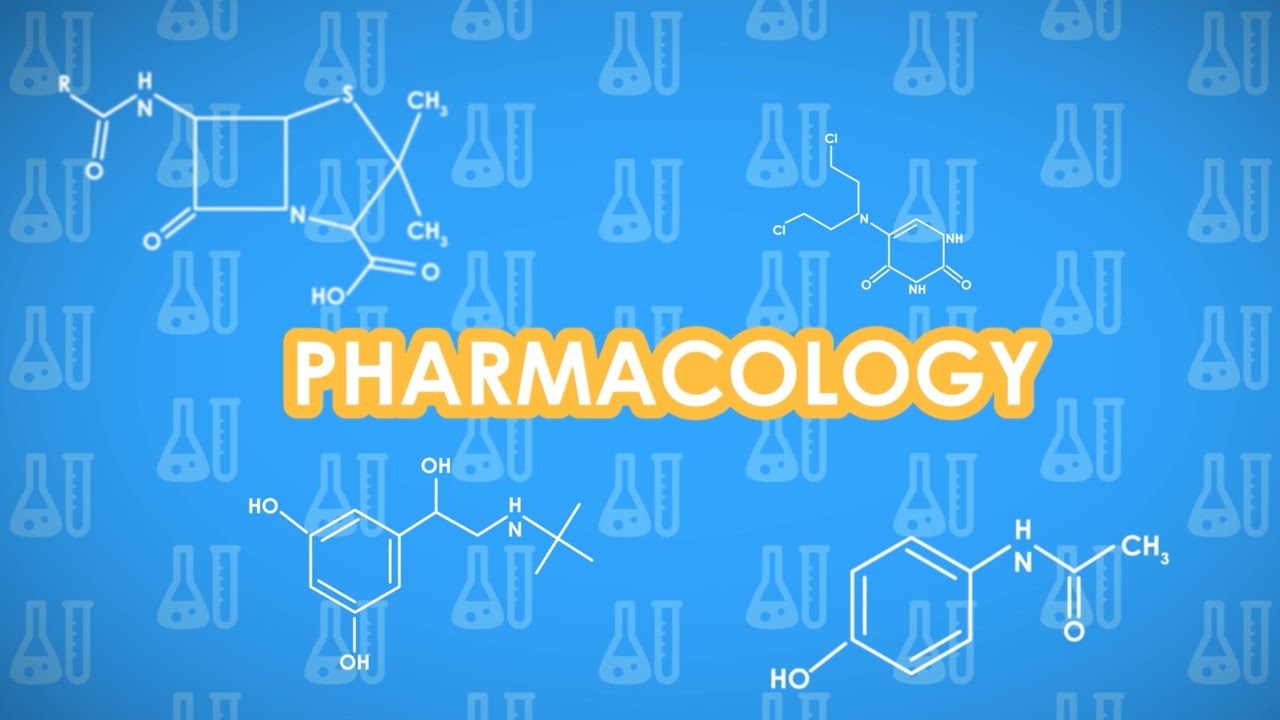Opportunities for Pharmacology Careers in Pakistan Requirements Complete salary guidelines for admissions, careers, experience programmes, and income information to consider pharmacy as a future profession. While pharmacokinetics studies how the medication affects the body, pharmacodynamics examines how a drug impacts an organism. Together, they have an impact on dosage, benefits, and negative effects.
The study of drug activity is the focus of the discipline of biology known as pharmacology. A drug is, roughly speaking, any synthetic, endogenous, or natural substance that alters the biochemistry or physiology of a cell, tissue, organ, or organism.
the investigation of drug’s physiological and pathological consequences. Expertise in medication dose, metabolism, tolerance, interactions, and adverse effects will be provided by the pharmacologist. He will be able to predict when a certain patient could experience medication problems. He is legally allowed to sell people a wide range of prescription medications. In certain cultures, he will instead practise herbalism, which makes use of all-natural, tried-and-true treatments that may or may not work
[lwptoc]
Pharmacology Career Scope in Pakistan

What are the required skills in this field?
For students seeking a D in pharmacy, strong leadership qualities as well as competent data analysis and information management abilities are also necessary. To get the best outcomes from the tests on evaluating novel medications, solid analytical abilities are also required. For the study to be submitted to a respected group of journals for publication, methodological knowledge is also crucial.
In this sector, having a basic understanding of computers and IT is also necessary. However, many organisations in this industry are looking for graduates who possess traits that are often lacking in students, such as time management abilities, a positive outlook, linguistic skills, teamwork, critical thinking, self-confidence, stress tolerance, written communication, self-awareness, and many more. Therefore, if you choose D Pharmacy, make sure you have all of these attributes.
There are numerous career chances for people who desire to pursue D Pharmacy, despite the fact that many students ask if D Pharmacy provides decent employment opportunities or scope in Pakistan. With this degree, you can access a wide range of lucrative job prospects.
Career and Scope of Pharmacology in Pakistan?
The future of D pharmacy in Pakistan is bright and offers a wide range of job possibilities in both the public and private healthcare industries. The majority of pharmacies and pharmaceutical enterprises in the nation employ pharmacists. After completing the D Pharmacy course, you’ll have access to a variety of professional options, including those in clinical pharmacy, hospitals, research, teaching, and medical writing.
Numerous prospects are presented by a career in pharmacy, opening the door to a bright future for young professionals. The employment opportunities, workplace environment, job satisfaction, and financial rewards are all exceptional. The need for entering the medical industry in Pakistan is the breadth of D Pharmacy, which piques students’ interest right away and puts them on the path to a lucrative career.
Pharm.D. is therefore unquestionably a very smart choice if you have completed your intermediate with FSc (pre-medical) and are considering the field in which you wish to pursue a professional career. It is expanding quickly and is anticipated to rank among Pakistan’s best paying industries.
Pharmacology Jobs in Pakistan
In private sector:
- Hospital Pharmacist at private hospital
- Instructor at Institute training Category B candidates
- NGOs
- Nutraceutical Industry
- Cosmetic Industry
- Training Centers
- Private Jobs:
- Pharmaceutical Industry
- Retail or Community Pharmacy
- Distribution setup
- Sales and Marketing
In Government Sector:
- Hospital Pharmacist in Government Teaching Hospitals
- Forensic Scientist
- Drug Testing Laboratories
- Drug Inspector
- Drug Regulatory Authority of Pakistan
Pharmacology Salary in Pakistan
The compensation packages differ from business to business. Even the pay differ between the public and private sectors.
While individuals working in the public sector may expect to make 60,000–95,001 per month and those working in the private sector can expect to make 65,000–150,000 per month, new graduates can easily earn up to 30,000 per month.
Institutes offering Pharmacology in Pakistan:
- Lahore College For Women University – Lahore
- University Of Sargodha – Sargodha
- University Of Swabi – Swabi
- Yusra Medical & Dental College – Islamabad
- Islam College Of Pharmacy – Sialkot
- Islam Medical College – Sialkot
- Johar Institute Of Professional Studies – Lahore
- Margalla Institute Of Health Sciences – Rawalpindi
- Yusra Institute Of Pharmaceutical Sciences – Rawalpindi
- Mohi-ud-din Islamic Medical College – Mir Pur (ajk
- Comsats Institute Of Information Technology – Abbottabad
- The University Of Faisalabad – Faisalabad
- The Islamia University Of Bahawalpur – Bahawal Pur
- University Of Malakand – Chakdara
- University Of Agriculture – Faisalabad
- Hazara University [havellian Campus] – Havelian
- Quaid-e-azam University – Islamabad
- University Of Sindh – Jamshoro
- Benazir Bhutto Shaheed University, Lyari – Karachi
- Dow University Of Health Sciences – Karachi
- Jinnah Sindh Medical University – Karachi University Of Karachi – Karachi
- Shah Abdul Latif University – Khair Pur
- Hamdard University – Islamabad Campus – Islamabad
- Riphah International University – Islamabad
- Shifa Tameer-e-millat University – Islamabad
- Baqai Medical University/hospital – Karachi
- Hamdard University – Karachi
- Jinnah University For Women – Karachi
- Nazir Hussain University – Karachi
- Zia-ud-din Medical University – Karachi
- Forman Christian College – Lahore
- Hajvery University – Lahore
- Lahore Leads University – Lahore
- The Superior University – Lahore
- Abasyn University – Peshawar
- Bahauddin Zakariya University – Lahore
- University Of Sargodha (sub Campus) – Lahore
- Abasyn University (sub Campus) – Islamabad
- Riphah International University (sub Campus) – Lahore
- Quaid-e-azam Postgraduate Medical College / Pims – Islamabad
- Sargodha Medical College – Sargodha
Questions for Interview related to Pharmacology
Describe pharmacology.
A scientific field called pharmacology deals with medications. pharmacodynamic and pharmacokinetic research, for example.
What is pharmacokinetic, exactly?
Absorption, distribution, metabolism, and excretion make up ADME. Pharmacokinetics is the study of how drugs interact with the body.
What is pharmacodynamic, exactly?
Pharmacodynamics refers to the effects a medicine has on the body.
What are drugs?
A medication is a chemical that is used to treat, prevent, or lessen the symptoms of disease.
What exactly is a drug?
a drug is a medication or preparation that is used to treat illness. A drug can both prevent and treat the illness. the area of medicine that focuses on treating diseases without surgery.
What exactly is a dose?
A precise dosage of a medication that has been
